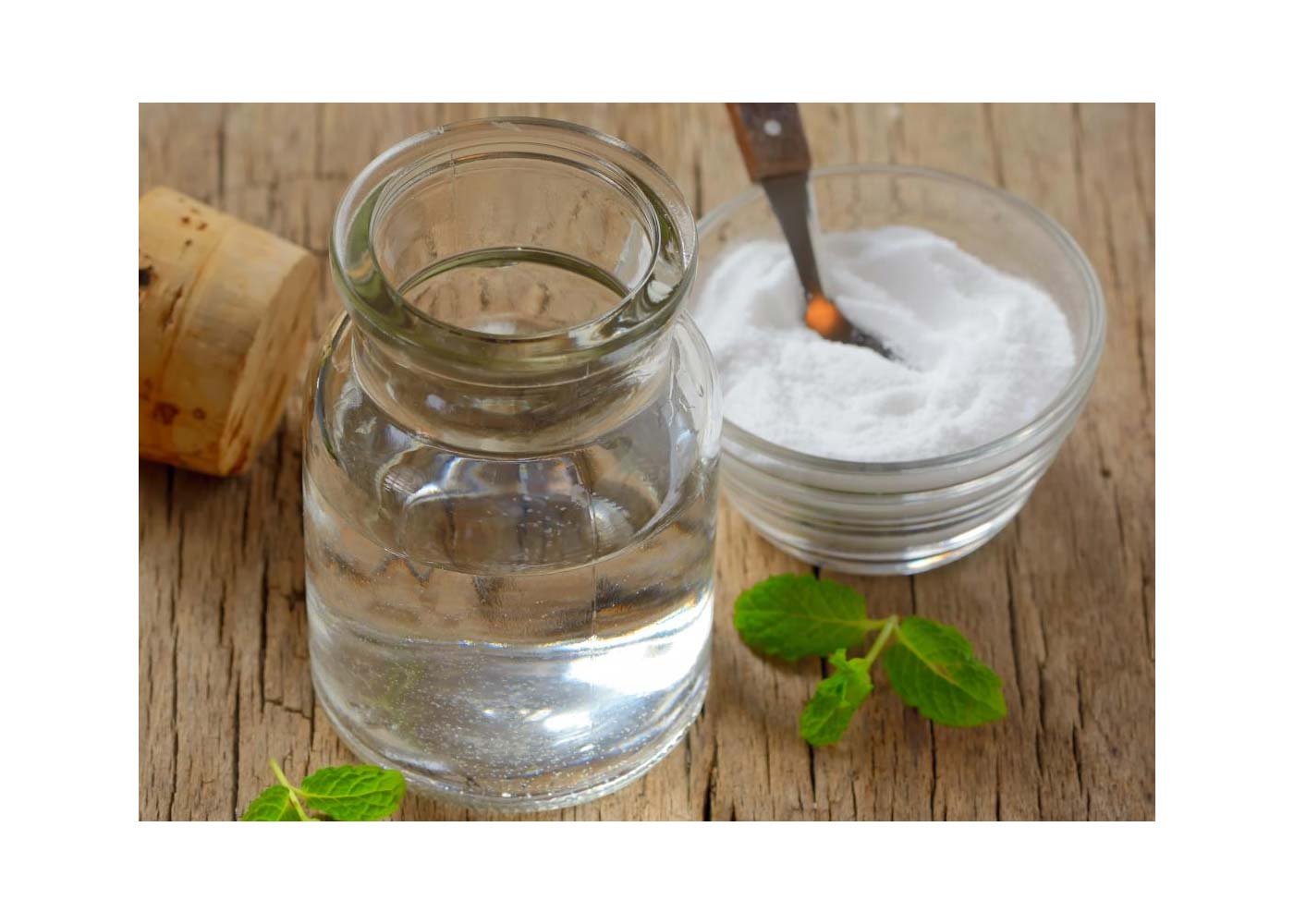Introduction
Imagine yourself on the sands of a stunning beach, the sun
warming your skin, and the sound of the calm waves lapping on the coast. You're
thirsty and can only see the big ocean before you. You consider drinking salt
water to satiate your thirst in a time of desperation. But it is important to
know the possible negative effects that might have a significant impact on your
well-being before you make that bold move.
The Science of Saltwater Intake
Salt water is water that has a lot of dissolved salt in it.
Although saltwater may seem safe, the amount of salt is far more than what your
body needs for normal operation. Your body is exposed to too much sodium
chloride when you consume seawater, which can upset the delicate equilibrium.
1. The Chemistry of Saltwater
About 96.5% of saltwater is made up of water, while the
remaining 3.5% is made up of dissolved materials like different minerals, gases
and organic things. The substance sodium chloride sometimes referred to as
table salt, is the one that is most prevalent in seawater. Saltwater also
includes traces of other elements, like magnesium, calcium, potassium, and
sulfate ions.
2. The primary problem is sodium chloride.
When it comes to salt water toxicity, sodium chloride is the
main offender among its constituents. Although sodium is a vital component of
the body, too much of it can have a negative effect on your health. The high
sodium content in seawater can upset the body's delicate electrolyte balance.
3. The Effects of Osmosis on the Body
Osmosis occurs when seawater enters the body. The process of
osmosis involves the movement of water molecules from a region with a lower
concentration of solutes (the inside of body cells) to a region with a higher
concentration of solutes (saltwater). The concentration of solutes on each side
of the cell membrane is intended to be balanced by this water flow.
Side Effects of Drinking Salt Water
1. Water Dehydration: A Deadly Cycle
While consuming saltwater may momentarily quench your
thirst, over time, it can cause serious dehydration. Osmosis, a mechanism that
removes water from your body's cells, is how seawater's high salt content
works. Your body loses more water than it gets, making you thirstier and
locking you in a vicious cycle.
2. Damage to the kidneys: A Hidden Threat
The damaging consequences of ingesting saltwater on your
kidneys are among its most important negative effects. The kidneys are
essential for keeping the body's water balance balanced and for filtering waste
items. However, the kidneys must work harder to clear the extra sodium chloride
because of the high salt in saltwater. This tension can harm the kidneys over
time and affect how well they function.
3. Imbalance in the Electrolyte: A Precious Equilibrium
Many biological processes, such as nerve transmission and
muscular contraction, depend on electrolytes like sodium, potassium, and
magnesium. Drinking seawater throws off your body's electrolyte balance, which
can result in symptoms including cramps, weakness, disorientation, and in
extreme situations, seizures.
4. An Unpleasant Journey: Gastrointestinal Distress
You can have nausea, vomiting and diarrhea as a result of
the high salt content irritating the lining of your digestive tract. These
signs and symptoms might exacerbate dehydration and deteriorate your general
health.
5. An Unsafe Increase in Blood Pressure
Saltwater has a high salt content, which can suddenly raise
blood pressure. Your heart and blood vessels are put under more stress when
your blood pressure is high, which raises your chance of developing
cardiovascular conditions like heart attacks and strokes. Pre-existing cardiac
or hypertension issues might make people more vulnerable to these risks.
6. The Effects of Saltwater on the Healing of Wounds
You may have experienced the pain of saltwater on an open
cut if you've ever scraped your knee while playing in the surf. The high salt
content of saltwater can irritate wounds, slow down healing, and raise
infection risks. In order to encourage good healing, it is crucial to rinse wounds
with fresh water.
7. Dental Health and Salt
Saltwater has an effect on dental health in addition to
internal wellness. Periodically gargling with salt water can assist with mild oral
irritations including sore throats and gum inflammation. Regular contact with
salt water, however, can damage tooth enamel, increasing the risk of cavities
and sensitivity.
8. The Cloudy Mind: Cognitive Impairment
For optimum performance, your brain needs a precise
electrolyte balance. This equilibrium is upset by drinking salt water, which
may cause cognitive decline. Confusion, trouble focusing, and in severe cases,
seizures or loss of consciousness, may be symptoms.
9. Cardiovascular Stress: A Serious Problem
Drinking salt water may put an undue strain on your heart,
which works nonstop to circulate oxygen-rich blood throughout your body. Your
blood pressure may increase due to the high salt content in saltwater, which
makes your heart work harder to keep blood flowing. As you cope with the toll
it takes on your body, this cardiovascular strain can result in elevated stress
levels and emotional instability.
10. The Dangers of Consuming Saltwater While Pregnant
When drinking seawater, pregnant women should take extra
care. The increased salt concentration might cause fluid retention, which could
make problems like edema worse. Additionally, the electrolyte imbalance brought
on by consuming saltwater might endanger both the mother and the growing fetus.
11. Saltwater's Effect on Muscle Cramps
Muscle cramps are uncontrollable, frequently sudden spasms
of the muscle fibers that can occur at any time. These excruciating bouts
usually pass quickly, but their intensity might change. While a number of things,
such as overuse, exhaustion, and anomalies in the nervous system, can lead to
muscular cramps, the relationship between salt water & cramping is
particularly noteworthy.
i. The Function of Electrolytes in Muscle
Understanding the action of electrolytes in muscles is
crucial to understanding how salt water causes cramping. Minerals known as
electrolytes have an electrical charge and are essential for sustaining healthy
neuron and muscle function. Involved electrolytes include calcium, magnesium,
sodium, and potassium.
ii. The Effect of Sodium on Muscle Cells
Muscle contraction and relaxation are fundamentally
influenced by sodium, an essential electrolyte. It aids in the nerve impulses'
transmission to the muscles, enabling their contraction and relaxation. Muscle
cramps can result from a salt imbalance, which can sabotage this sensitive
process.
iii. Dehydration and cramping of Muscles
Muscle cramps are frequently brought on by dehydration, and
salt water can make the problem worse. When you stay a while in the water, the
high salt content can dehydrate you by removing moisture from your body. The
amount of electrolytes in the muscles rise as your body loses water, disrupting
their regular operation and raising the probability of cramping.
iv. Too Much Salt, Too Many Cramps: Hypernatremia
A disorder known as hypernatremia is characterized by
elevated sodium levels in the blood. Hypernatremia can result from consuming
too much salt, such as saltwater. This disorder throws off your body's
electrolyte balance, which leads to muscular cramps.
Visible Indications of Consuming too Much Salt Water
1. Puffy and Swollen Appearance
A bloated and puffy look is one of the obvious symptoms of
eating too much salt water. Excessive salt consumption can result in water
retention, which causes bloating and puffiness, especially in the hands, feet,
and face.
2. Cracked, Dry Lips
Excessive saltwater drinking frequently results in
dehydration. Lips that are not adequately hydrated can become dry
& cracked as the body strives to maintain fluid balance.
3. Unquenchable Thirst
A heightened sense of thirst is the body's reaction to
excessive blood salt levels. Even after drinking a lot of water, this
insatiable thirst may still be present, indicating an imbalance in your body's
fluid levels.
4. Often Urinating
Increased urination can result from consuming too much salt
water. More visits to the bathroom are required as the body attempts to flush
off the extra salt through urine.
5. Weakness and Fatigue
Excessive saltwater consumption can cause the body to become
unbalanced, which can lead to weariness and weakness. Without the right fluid
and electrolyte balance, the body's cells struggle to continue operating as
they normally would.
6. Nausea and Vomiting
In rare situations, excessive saltwater ingestion can cause
nausea and vomiting in the body. The body may experience these symptoms as a
result of its efforts to flush out extra salt and regain balance.
7. Spasms and Cramps in the Muscles
Too much saltwater consumption might result in an
electrolyte imbalance that can induce cramping and spasms in the muscles.
Disrupted potassium and sodium levels, which are crucial for healthy muscular
function, cause these uncomfortable spasms.
8. Elevated Blood Pressure
Excessive salt intake can cause high blood pressure. Too
much salt in the body can make it difficult for the kidneys to excrete it,
raising blood pressure and perhaps endangering cardiovascular health.
9. Inflammation in the Extremities
After eating a lot of salt water, swelling in the hands,
feet, or ankles may indicate fluid retention. Swelling is seen as a result of
the body's attempt to dilute the extra salt by retaining water.
10. Electrolyte Balance is Thrown Off.
Electrolytes, which are essential for many body processes,
are abundant in saltwater. The equilibrium of these electrolytes can be upset
by an excess, which can result in a number of issues.
11. Kidney Issues
The equilibrium of fluid and electrolytes is crucially maintained
by the kidneys. Consuming too much salt water can strain the kidneys and, over
time, could result in renal issues.
12. Confusion and Dizziness
Confusion and dizziness can arise when electrolyte levels
are out of balance as a result of consuming too much salt water. These signs
appear as the brain attempts to operate at its best in the absence of the
required electrolyte homeostasis.
13. Migraines and Headaches
In those who are vulnerable, high salt levels can cause
headaches and migraines. The body's reaction to the imbalances caused by excess
sodium may cause these uncomfortable symptoms.
14. Skin that is More Sensitive
Consuming too much saltwater might increase the skin's
sensitivity to pressure and the environment. This increased sensitivity could
make you feel uncomfortable and irritated.
15. Breathing Difficulty
In extreme situations, drinking an excessive amount of
saltwater might result in a fluid overload that makes breathing difficult. The
need for rapid medical care is indicated by this symptom.
Treatment for Negative Effects of Saltwater
Let's take a minute to explore the numerous adverse effects
that might develop following exposure to saltwater before moving on to the
remedies. High quantities of salt and other minerals found in saltwater can
cause a number of discomforts, including stomach problems, allergies, skin
irritations, eye as well as ear discomfort, and hair damage. The severity of
these side effects may vary, but they frequently require attention and fast
treatment to protect your health.
1. Taking Care of Skin Irritations
i. Soothing Sunburns
Sunburn is one of the most typical adverse effects of
seawater. Without adequate protection, spending a lot of time in the sun can
cause severe redness, irritation, and skin peeling. Consider the following
remedies to lessen the pain that sunburn causes:
a. Aloe vera gel can be used to cool and soothe the
afflicted region.
b. Having a chilly shower or bath to lower the skin's
temperature.
c. hydrating and nourishing the face using moisturizers that
contain components like shea butter or coconut oil.
d. using painkillers to treat pain and inflammation, such as
ibuprofen.
ii. Taking Care of Rash and Itching
Saltwater exposure occasionally causes rashes and irritation.
These skin irritants might result from an allergic reaction or by coming into
touch with irritants in the water. The following remedies can assist with
itching and rashes:
a. using hydrocortisone cream to soothe itching and
irritation.
b. Antihistamines are taken to treat allergic responses.
c. To reduce irritation, use gentle, fragrance-free soaps
and cleansers.
d. cleaning and drying the afflicted area to stop bacterial
infections.
iii. Moisturizing Dry Skin
The skin might become dry and prone to breaking due to the
drying effects of saltwater. Consider the following remedies to replenish
moisture and stop future discomfort:
a. Hydrating the skin by using moisturizers that include
glycerin or hyaluronic acid.
b. Avoid taking hot baths or showers since they might
further deplete the skin's natural oils.
c. Consuming a lot of water to hydrate the body inside.
d. Putting on protective gear to protect your skin from the
sun & salt water, such as caps and long sleeves.
2. Taking Care of Eye and Ear Pain
i. Getting Rid of Redness and Itching
Saltwater can irritate, itch, and make your eyes red. Try
the following remedies if you are displaying these symptoms:
a. Use sterile saline solution to rinse any contaminants
from your eyes.
b. Using cold compresses or cucumber slices to cool and calm
the eyes might help lessen their redness.
c. Avoid scratching or rubbing your eyes since doing so
might make the discomfort worse.
d. Seeking medical help if the signs and symptoms continue
or get worse.
ii. Swimmer's Ear Care
Swimmer's ear, commonly known as otitis external, is a
common ear ailment brought on by exposure to saltwater. It happens when water
becomes stuck in the ear canal, causing irritation and infection. Swimmer's ear
can be treated as follows:
a. Ear canal drying using ear drops.
b. Warm compresses can be applied to relieve pain and
decrease inflammation.
c. As long as the infection is present, refrain from
swimming or submerging your head in water.
d. If the symptoms continue, seek advice from a medical
practitioner for additional assessment and treatment.
3. Preventing Saltwater Damage to Hair
i. Bringing back Shine and Moisture
Your hair may feel dry, brittle, and lackluster after
swimming in saltwater. Try the following remedies to help it regain its
vitality:
a. Rehydrating hair using deep-conditioning masks or hair
oils.
b. Use heat protection products or avoid using excessive
heat when styling your hair.
c. Use sulfate-free conditioners and shampoos to stop
additional dryness.
d. After swimming, rinse your hair with fresh water to
eliminate any remaining salt.
ii. Repairing Hair That Is Fragile and Frizzy
Consider these treatments if your hair becomes weak and
frizzy after coming into contact with saltwater:
a. using serums or leave-in conditioners to smooth and
control frizz.
b. Detangle your hair carefully using wide-tooth combs or
brushes with soft bristles.
c. Avoid vigorous towel drying and pat your hair dry instead
using a soft towel or a T-shirt.
d. maintaining the health of your hair by getting regular
trims to eliminate split ends.
4. Managing Allergies to Saltwater
i. How to Recognize Allergic Reactions
Some people may respond allergic to saltwater, exhibiting
symptoms including hives, itching, or breathing difficulties. if you think you
could be having an allergic response, do the following:
a. Stop being around seawater and find a safe place to be.
b. Use fresh water to rinse off your body of any residual
salt water.
c. If you have any antihistamines on hand, take them.
d. If the allergic response is severe or if you have a
history of having severe allergic reactions, get emergency medical treatment.
ii. Looking for Medical Help
It is essential to speak with a healthcare provider if your
saltwater allergies are severe or chronic. They can carry out tests to
determine the precise allergens causing your symptoms, and they can also
suggest suitable treatment choices, such as allergy injections or prescription
drugs.
5. Keeping Digestive Pain to a Minimum
i. Rehydrate the Body
When swimming or playing in the ocean, you run the risk of
accidentally ingesting seawater, which can cause digestive problems like nausea
or diarrhea. Try the following remedies to reduce these signs and symptoms:
a. To rehydrate your body and flush away extra salt, drink a
lot of pure water.
b. consuming crystal-clear liquids to replace lost minerals,
such as electrolyte solutions or broth.
c. avoiding spicy or oily foods, as well as other foods and
drinks that could aggravate your stomach worse.
ii. Electrolyte Balancing
When saltwater is consumed, it might throw off your body's
electrolyte balance. Consider the following remedies to regain this balance:
a. eating potassium-rich foods, such as bananas or avocados.
b. your meals with a dash of salt to restore sodium levels.
c. To restore electrolyte balance, take into account oral
rehydration treatments.
iii. Reducing Vomiting and Nausea
As a result of consuming saltwater, you can feel chronic nausea
or vomiting. The following remedies might help:
a. allowing your body to recuperate by taking it easy and
avoiding hard activity.
b. using antacids or antiemetics available to reduce nausea.
c. eating little, regular meals that are easy on the stomach,
such as toast or simple crackers.
Conclusion
In conclusion, while consuming saltwater may appear alluring
while suffering from dehydration, the risks outweigh the short-term benefits. Health
hazards associated with saltwater consumption include dehydration, renal
damage, an imbalanced electrolyte, blood pressure rises, and cognitive
impairment. Prioritize clean drinking water sources & stay away from the
appeal of saltwater.
If you wish to contribute to our blog, please email us on morhadotsan@gmail.com.























